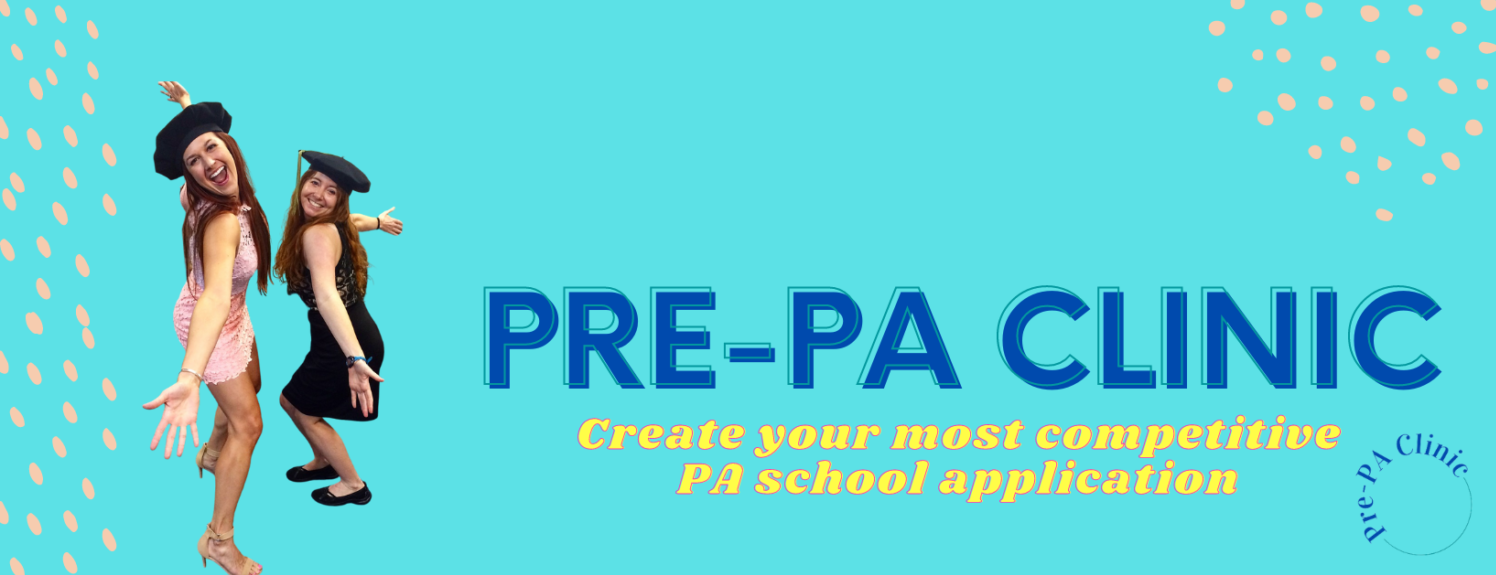
You’ve made it to the interview stage—congratulations! That means your hard work has paid off, and schools are impressed with your application. But now comes the nerve-wracking part: proving in person (or on Zoom) that you’re the perfect fit for their program. No pressure, right?
Before you panic, take a deep breath. Let’s break this down step by step so you can feel confident walking into your interview and answering any question they throw your way.
Step 1: Remember Why You’re Here
First things first: you belong here. The admissions committee didn’t choose you by accident. Your experiences, essays, and stats stood out from the crowd. They already see potential in you—they just want to confirm what they already suspect: that you’ll make an amazing PA.
Whenever you start doubting yourself, remind yourself that you’ve already impressed them. You’re not there to prove you’re perfect; you’re there to show them who you are and why you’ll thrive in their program.
Step 2: Prepare 3–5 Go-To Stories
One of the best ways to shine in your interview is to have a handful of stories ready that highlight your experiences, strengths, and problem-solving skills. These can be from patient care, volunteering, leadership roles, or even personal moments that shaped your journey to becoming a PA.
Here’s why this works: Many interview questions can be answered with the same stories, just framed differently. For example:
• “Tell me about a time you worked in a team.”
• “Describe a challenge you faced and how you handled it.”
• “Why do you want to become a PA?”
Your go-to stories should show:
• Teamwork: Times you worked well with others (bonus points if it’s in healthcare).
• Problem-Solving: Moments where you had to think on your feet or adapt.
• Empathy: Experiences that show your ability to connect with patients or colleagues.
• Growth: Challenges you overcame or lessons you learned.
Write out your stories and practice framing them for different types of questions. This will help you sound polished but not robotic.
Step 3: Practice, But Don’t Over-Rehearse
Speaking of practice, one of the best ways to prepare is by running through mock interviews. Enlist a friend, family member, or mentor to ask you common PA school interview questions and give feedback on your answers.
However, don’t memorize every answer word for word. Why? Because you’ll sound rehearsed, and it might throw you off if the interviewer asks the question in a different way. Instead, focus on key points you want to hit in your answers and practice speaking naturally.
Here are a few common questions to practice:
• “Why do you want to become a PA?”
• “What is your biggest weakness?”
• “What will you contribute to our program?”
• “Tell me about a time you made a mistake in a healthcare setting.”
Step 4: Research the Program
Schools want to know you’re not just applying to every program under the sun—they want to see that you’ve done your homework and understand what makes their program unique.
Take the time to research their curriculum, mission statement, and any standout features like community service opportunities or specialties they emphasize. Then, be prepared to answer questions like:
• “Why did you apply to our program?”
• “What about our mission aligns with your goals?”
Pro tip: Use this research to come up with a couple of thoughtful questions to ask the interviewers at the end. It shows genuine interest and makes a great impression.
Step 5: Keep Calm and Be Yourself
It’s natural to feel nervous—interviews are a big deal! But don’t let anxiety take over. Remember that interviewers want to get to know the real you, not a rehearsed or overly polished version.
Here are a few ways to stay calm:
• Pause before answering. Taking a moment to collect your thoughts is better than rushing into a rambling response.
• Focus on connection. Treat the interview like a conversation, not a test.
• Smile and show enthusiasm. Schools want students who are excited to be there!
If you don’t know an answer, it’s okay to admit it. For example, you can say, “That’s a great question. I haven’t experienced that directly, but here’s how I would approach it…”
Step 6: Follow Up Like a Pro
Once your interview is over, don’t forget this crucial step: send a thank-you email. It’s a small gesture that can leave a big impression.
Your thank-you email should:
1. Express gratitude for the opportunity to interview.
2. Reiterate your excitement about the program.
3. Mention something specific from your conversation to personalize the note.
Here’s a quick template to get you started:
Subject: Thank You for the Opportunity
Dear [Interviewer’s Name],
Thank you so much for taking the time to speak with me during my interview for [PA Program Name]. I really enjoyed learning more about [specific detail about the program or conversation].
The opportunity to join [PA Program Name] and contribute to [specific aspect of the program’s mission] is incredibly exciting to me.
Please don’t hesitate to reach out if you need any additional information from me. Thank you again for the opportunity, and I hope to be part of your program in the future!
Best regards,
[Your Full Name]
You’ve Got This!
Interviews can feel intimidating, but remember: the hardest part—getting to this stage—is already behind you. Now’s your chance to show schools why you’re going to make an amazing PA.
Take the time to prepare with a mock interview, practice your stories, and trust in all the work you’ve put into your journey so far. You’ve earned this moment—now go crush it!

